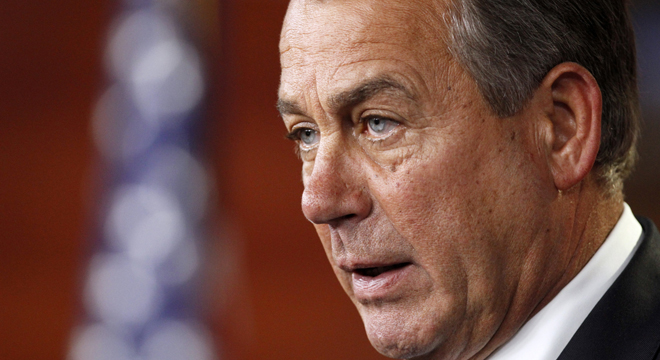Two weeks away from a shutdown, there is no endgame in sight for Congress to continue funding the government and stop many federal services from grinding to a halt.
The two parties aren’t negotiating; they’re sniping at each other. And the fissure between them appears wider than ever. Congress has five working days left to avert a shutdown unless it cancels the scheduled recess next week.
Budget talks between the White House and Senate Republicans have collapsed. House Republicans are in disarray and last week put off consideration of their continuing resolution to fund the government. Many House Republicans remain intent on threatening a shutdown to defund Obamacare, which is off the table for Democrats. And the two parties disagree on how much the federal government ought to spend when the new fiscal year begins Oct. 1 — specifically, whether to maintain sequestration levels.
Worse yet, Senate Minority Leader Mitch McConnell (R-KY), who has typically been the White House’s vehicle for a crisis-averting bill, is facing a conservative challenger for reelection and is motivated to steer clear of that role this time around.
In the latest sign of peril, more House Republicans, egged on by well-organized conservative activists, are signing on to legislation by Rep. Tom Graves (R-GA) to shut down the government unless Democrats agree to defund Obamacare. The bill was introduced last Thursday with 43 cosponsors and now has at least 54 backers.
While Republican leaders still recognize they’d be blamed for a shutdown and are trying to avoid it, it’s far from clear they’ll be able to dissuade their members from demanding Obamacare concessions. Their continuing resolution would fund the government through Dec. 15; but with House Democrats determined not to help them enshrine low spending levels, they have just 16 votes to spare.
The House is supposed to act first, so Senate Democrats are waiting to see what they do. Rumblings on Capitol Hill are that House GOP leaders, facing conservative opposition to their existing plan, are considering all sorts of ideas, from coupling the stopgap measure with the debt ceiling to attaching goodies like unraveling Obamacare, approving the Keystone XL pipeline and reforming entitlement programs and the tax code.
“Still planning to act this week,” said a House GOP leadership aide. “Lotta ideas, no decisions.”
If House Republicans pull it off and pass their proposed resolution — or a variant of it — that maintains sequestration spending levels while letting the Senate decouple Obamacare, a shutdown will likely be avoided. Anything short of that leaves deeply uncertain prospects of keeping the federal government running after Sept. 30.
President Barack Obama is losing his patience. He scolded Republicans during a speech Monday for threatening a government shutdown — or worse, a debt default — to unwind the health care law, reminding them that they lost the 2012 election.
“I cannot remember a time when one faction of one party promises economic chaos if it can’t get 100 percent of what it wants. That’s never happened before. But that’s what’s happening right now,” the president said. “The Affordable Care Act … was an issue in last year’s election and the candidate who called for repeal lost.”
The White House has no intention of caving, for several reasons: there’s no election looming; the falling deficit reduces the impetus for spending cuts; and Republicans will take the blame for a shutdown. Republicans don’t want to cave because they’re anxious to undermine Obamacare before its implementation accelerates on Oct. 1 and extract spending concessions after getting none in the fiscal cliff deal early this year.
“It’s a shame that the president could not manage to rise above partisanship today,” Boehner retorted on Monday afternoon. “Instead, he should be working in a bipartisan way to address America’s spending problem — the way presidents of both parties have done before. He should work with us to delay his health care law for everyone.”
It’s a particularly bad sign if even Boehner, who wants to avoid a shutdown, is fueling the sentiments of the anti-Obamacare crowd at this critical juncture. Even the deeply polarized Congress of recent years has managed to avert shutdown and default. But it remains to be seen whether, in the face of all the new obstacles, leaders can pull another rabbit out of their hats. The final days tend to focus their minds.






